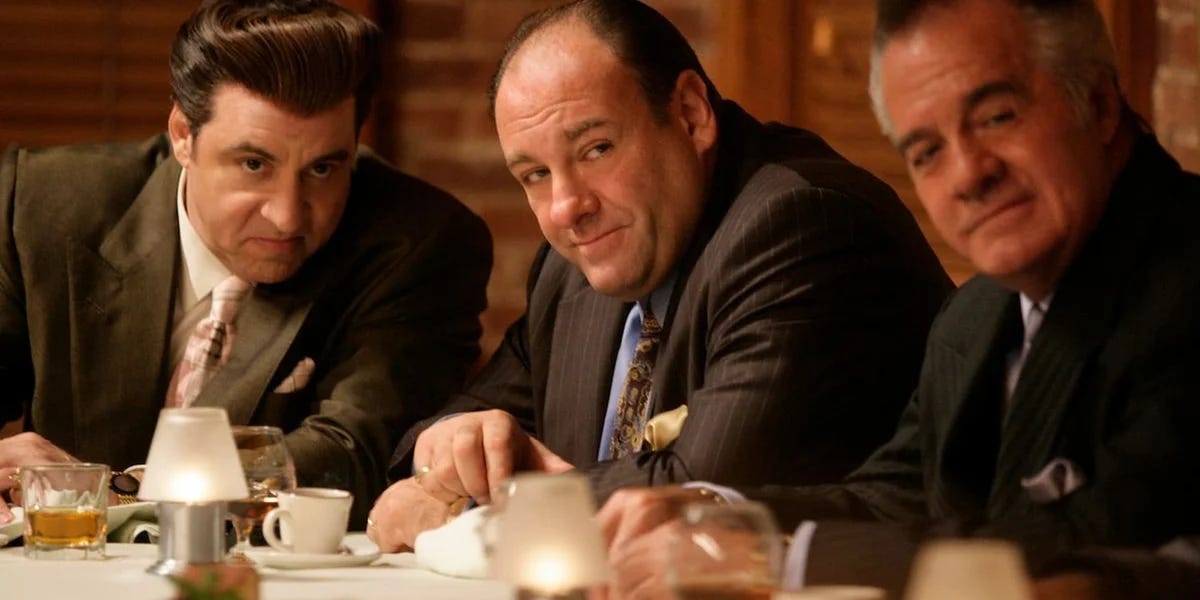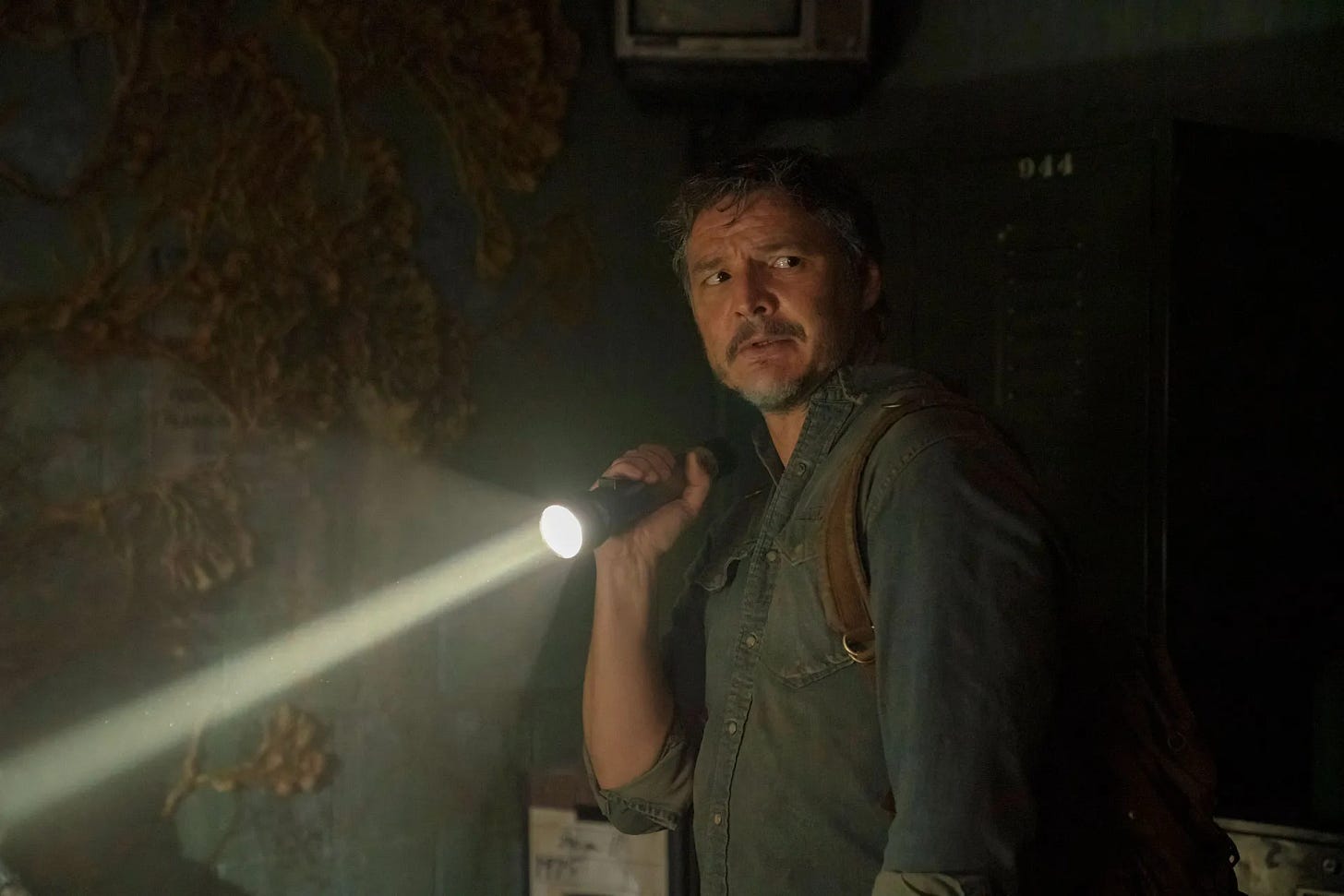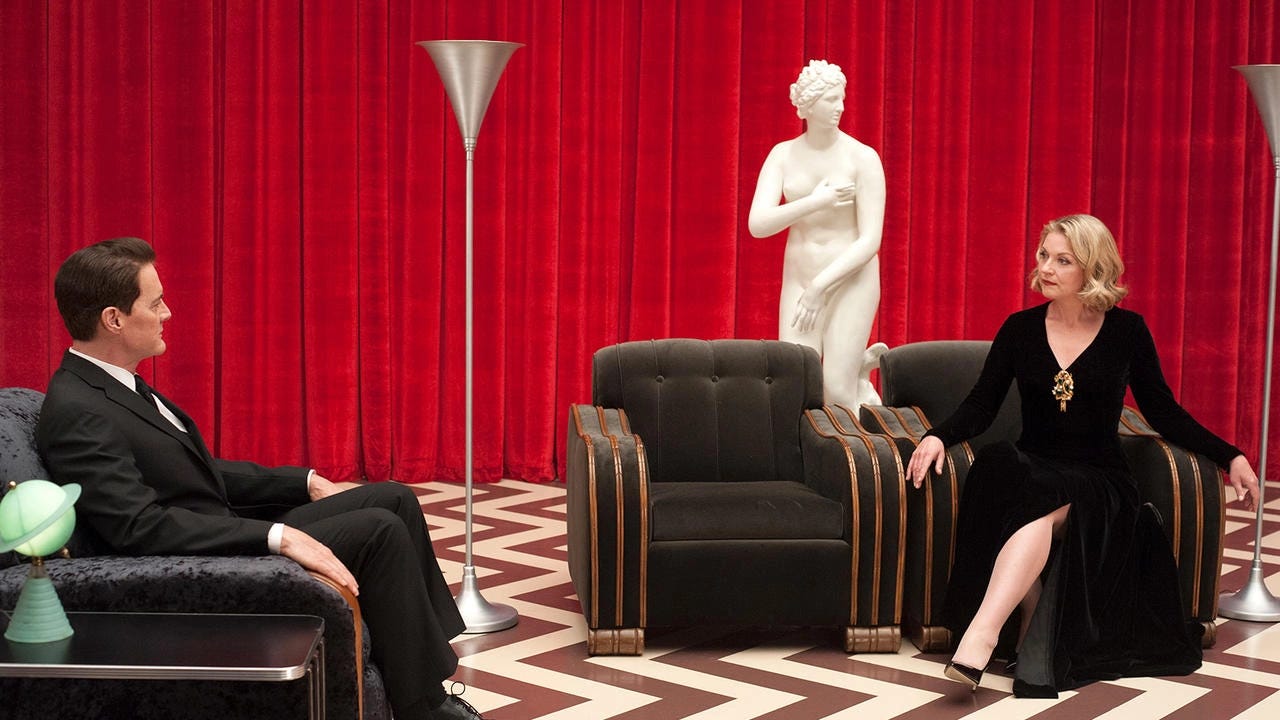The Problem of Television
Where Is It Going, and Do I Want to Go There?
Once they know I’m a movie addict, many well-intentioned people start recommending TV shows to me. I guess that makes sense, but I find it difficult to commit to a TV show, especially one that contains multiple seasons. My favorite response to those recommending a television series is, “You know, a TV show is a long-term commitment. A movie is like a blind date. One experience and (usually) you’re done.”
I see over 200 movies annually, which isn’t all that many, but I read over 100 books a year, which is more time-consuming. In most cases I’d rather watch five movies in the same amount of time it takes to watch one season of a television series. One problem is that many TV shows are produced in the long form. In other words, they consist of extended story arcs that may cover more than one season.
That usually wasn’t the case for shows I grew up watching in the 1960s and ‘70s which contained many episodes (usually 39) per season, but were primarily episodic within a larger thematic context: Star Trek was probably going to explore a different planet each week, Marshall Dillon from Gunsmoke would bag a different bad guy every Saturday night, and with each episode of Sanford and Son, you could count on Fred to (a) avoid work, (b) fight with Lamont, (c) come up with some get-rich-quick scheme, and (d) mix it up with Aunt Esther. Even shows that contained an ongoing storyline, like Richard Kimble’s weekly search for the one-armed man on The Fugitive, were largely episodic.
Except for prime-time soap operas like Dallas and Dynasty in the late 1970s and early ‘80s, it wasn’t until the 1990s that we saw TV shows that were uniquely serialized such as N.Y.P.D. Blue and Twin Peaks, then moving on to The Wire, The Sopranos, Mad Men, Breaking Bad, and more. Serialized shows pulled the audience back each week. You didn’t want to miss an episode since the show revealed crucial information (we hoped) in each episode. The makers of movie serials from the 1920s through the ‘50s knew this well before TV figured it out, and Charles Dickens knew it before that, serializing his novels as far back as 1837.
In most cases with modern TV programming, you no longer have to wait each week to tune in. You can simply binge-watch episodes, something that was unheard of years ago. Now you can marathon entire seasons in a matter of days (depending on whatever else may be going on, or not, in your life). Of course, it helps that most TV seasons no longer run for 39 episodes as they did back in the day. You can knock out 10 episodes easily.
Even shows that I begin watching and somewhat enjoy, I usually abandon before a full season is over. Last year I watched the first two episodes of The Last of Us, and while those episodes were well-produced and somewhat engaging, I didn’t care enough about the characters or the plot to keep watching. (Don’t hate me.)
If someone suggests a show I think I might like, I may give it a couple of episodes if I can access it. I subscribe to limited streaming platforms, so if I can get it from one of those sources or a library DVD, I’ll possibly take a look. No guarantees.
What do I look for? First of all, good writing. Second, believable yet flawed characters. A distant third, believable surprises. If you can give me those things, especially the first two, I’ll give it a chance.
So what have I liked lately?
I enjoyed the first season of Perry Mason although it’s largely Mason’s origin story and is far removed from what we’ve come to expect from the original series starring Raymond Burr. But it’s very noirish, and from what I’ve heard, even more so in the second season, yet it looks like the series will end there. (For more on the first season, you can read my review.)
For several months everyone was talking about Poker Face, and I liked the concept of playing off the original Columbo series. Like Perry Mason, Poker Face is derivative but with a nice gender switch. Although the idea isn’t necessarily original, the producers gave it an interesting spin. The best part of the show is the fact that it is episodic while retaining a larger arc.
One show (actually a mini-series) I’m still interested in that no one appeared to be talking about when it was released is A Spy Among Friends (formerly on Amazon Prime, now on MGM+), based on the terrific nonfiction book A Spy Among Friends: Kim Philby and the Great Betrayal by Ben Macintyre. At only six episodes, it’s a limited commitment, but I can’t access it.
The last series I loved was Better Call Saul. This show, along with Breaking Bad, are the two best TV series I’ve seen in a long time (understanding that I haven’t seen that many series in the past 10 years). These are two shows with a high rewatchability factor, which isn’t important for everyone, but it is for me. And just today I finished the second season of Star Trek: Strange New Worlds. I grew up on the original series, but never really got too excited about any of the other incarnations until now. Is this the visual version of comfort food? Perhaps. The bottom line (like anything in our lives) is that I enjoy it. It gives me joy.
A friend of mine commented on a previous post regarding this topic, “A TV series might have an artistic vision for the arc of the first season, but if it's popular and renewed for subsequent seasons, it usually turns into more of a marketing vehicle, more about hooking you into watching show-to-show and season-to-season. …from the complaining I hear about series going downhill after the first season, I think a lot of series would have been better off as a one-season mini-series.”
There’s some truth to that. Television, how we view it, what we will accept and what we won’t, are all concepts that are still in flux. With so many choices, it’s difficult to fight a platform’s algorithms and figure out something as simple as “What do I want to watch tonight?” And then we’re back to the idea of recommendations. Like anything else, we tend to accept suggestions from the people we trust, the people who know us best. Bad recommendations tend to come from (again, well-intentioned) people who know us a little or casually.
But if our concept of television has changed, if we’re looking for longer arcs, when do we no longer call them “television shows”? Many critics placed Twin Peaks: The Return (or Season 3) on their Best Movies of 2017 lists. But it wasn’t a movie. Or was it? Although Twin Peaks: The Return draws on what has come before with the first two seasons and the film Twin Peaks: Fire Walk With Me (1992), TPTR can stand as a cohesive whole. Maybe you can think of it as a long movie with 17 intermissions.
I also think of a movie like the stunning La Flor (2018), a 13-hour film. Would this have worked better as a 13-episode TV show?
To be honest, I’m not sure what to do with all this. I could simply tell you, “If I like it, I’m going to watch it” and leave it at that. I’ve always thought that you tell your story until you don’t have any more story to tell. As Stephen King famously wrote, “When you don’t know what happens next, that’s the end.” The problem is usually that executives will coerce writers and producers to continue beyond the end, which normally leads to the point of diminishing returns. Some audiences will let you know when enough is enough. Others will keep watching ad infinitum (or ad nauseam).
I’ve opened up this article to comments from everyone, so I’d love to hear where you think television and movies are going.










I totally get where you're coming from.
For me, finding the time to dive into movies, let alone embark on the marathon that is binge-watching TV show arcs spanning multiple seasons, is a challenge.
I still gravitate towards the simplicity of classic TV shows. Even though they might not offer as much room for character development compared to feature films. Characters, even if they are "flat," can draw me in and satisfy my need for a story in a single episode.
TV shows that have longer story arcs are a hit or miss for me when it comes to their climaxes. Sometimes, an episode ends on such a high note, but then the series finale leaves me feeling... underwhelmed. "Jericho" was one of those shows that left me wanting more satisfaction from its conclusion.
It seems like sometimes the story arc of these shows are based on economic or popularity reasons. And these factors can stretch a story thinner than we'd like, rather than wrapping it up in a way that feels right from a storytelling perspective.